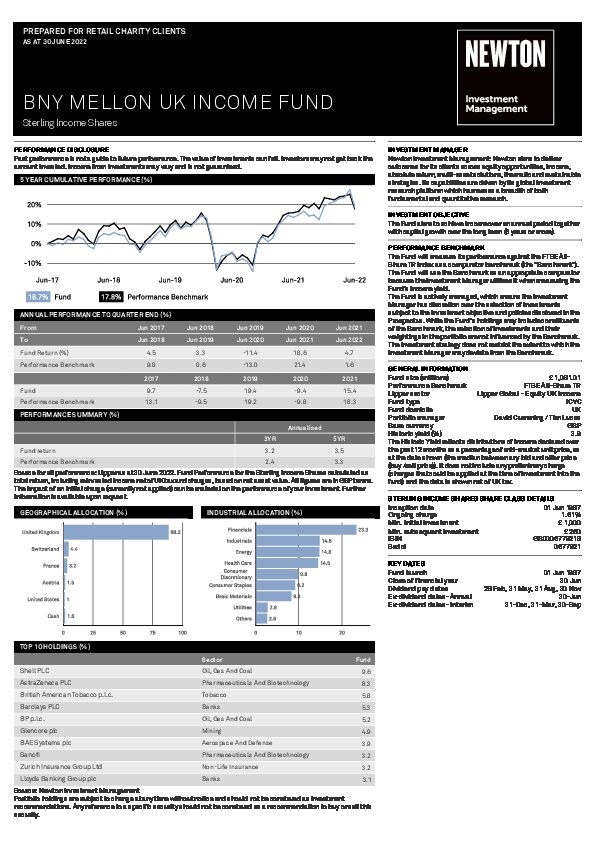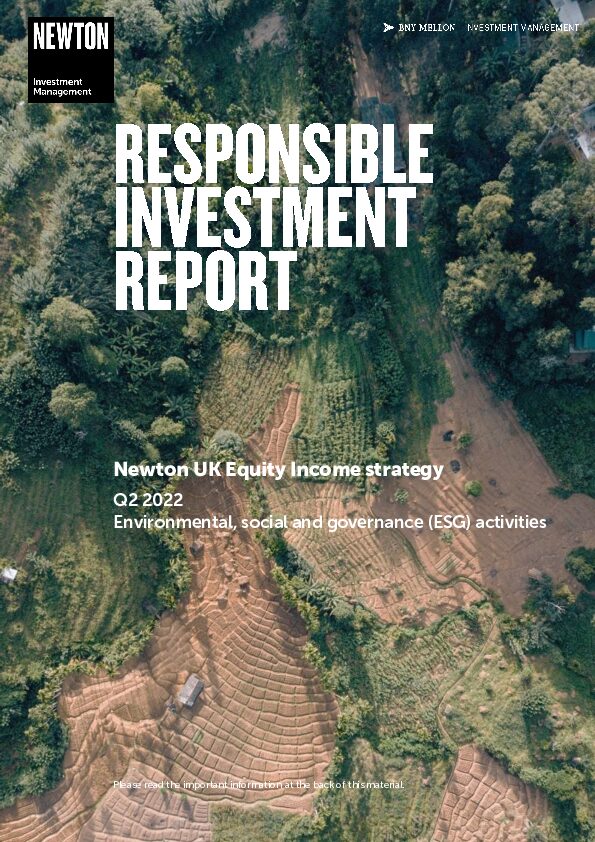Investment team
Our UK Equity Income strategy is managed by an experienced team. Our investment team of research analysts and portfolio managers works together across regions and sectors, helping to ensure that our investment process is highly flexible. Guided by our global investment themes, we seek to identify opportunities and risks through research and debate.
- 24
- years’ average investment experience
- 18
- years’ average time at Newton
-

David Cumming
Head of UK Equities
-

Tim Lucas
Portfolio manager, UK Equities team
-

Jon Bell
Portfolio manager, global equity income
-

Robert Hay
Portfolio manager, global equity income
-

Paul Flood
Head of mixed assets investment
-

Zoe Kan
Portfolio manager, emerging and Asian equity income
-

John C Bailer
Deputy head of equity income, portfolio manager
-

Brian Ferguson
Portfolio manager, equity income team
-

Peter D Goslin
Portfolio manager, equity income team
-

Keith Howell Jr.
Portfolio manager, equity income team
-

Adam Logan
Portfolio manager, equity income team
-

James A Lydotes
Deputy chief investment officer, equity
Strategy profile
-
Objective
-
The strategy aims to achieve income over an annual period together with capital growth over the long term (5 years or more).
-
Performance benchmark
- FTSE All-Share
-
Typical number of equity holdings
- 40 to 60
-
Literature
-
Application form
Key Investor Information Document (KIID)
Prospectus
Your capital may be at risk. The value of investments and the income from them can fall as well as rise and investors may not get back the original amount invested.
Newton will make investment decisions that are not based solely on ESG considerations. Other attributes of an investment may outweigh ESG considerations when making investment decisions. The way that ESG considerations are assessed may vary depending on the asset class and strategy involved. The research team performs ESG Quality Reviews on equity securities prior to their addition to Newton’s Research Recommended List (RRL). ESG Quality Reviews are not performed for all fixed income securities. The portfolio managers may purchase equity securities that are not included on the RRL and which do not have ESG Quality Reviews. Not all securities held by Newton’s strategies have an ESG Quality Review completed prior to investment, although since 2020 it has been a requirement for all (single name) equity securities to have an ESG Quality Review before they are purchased for the first time.



